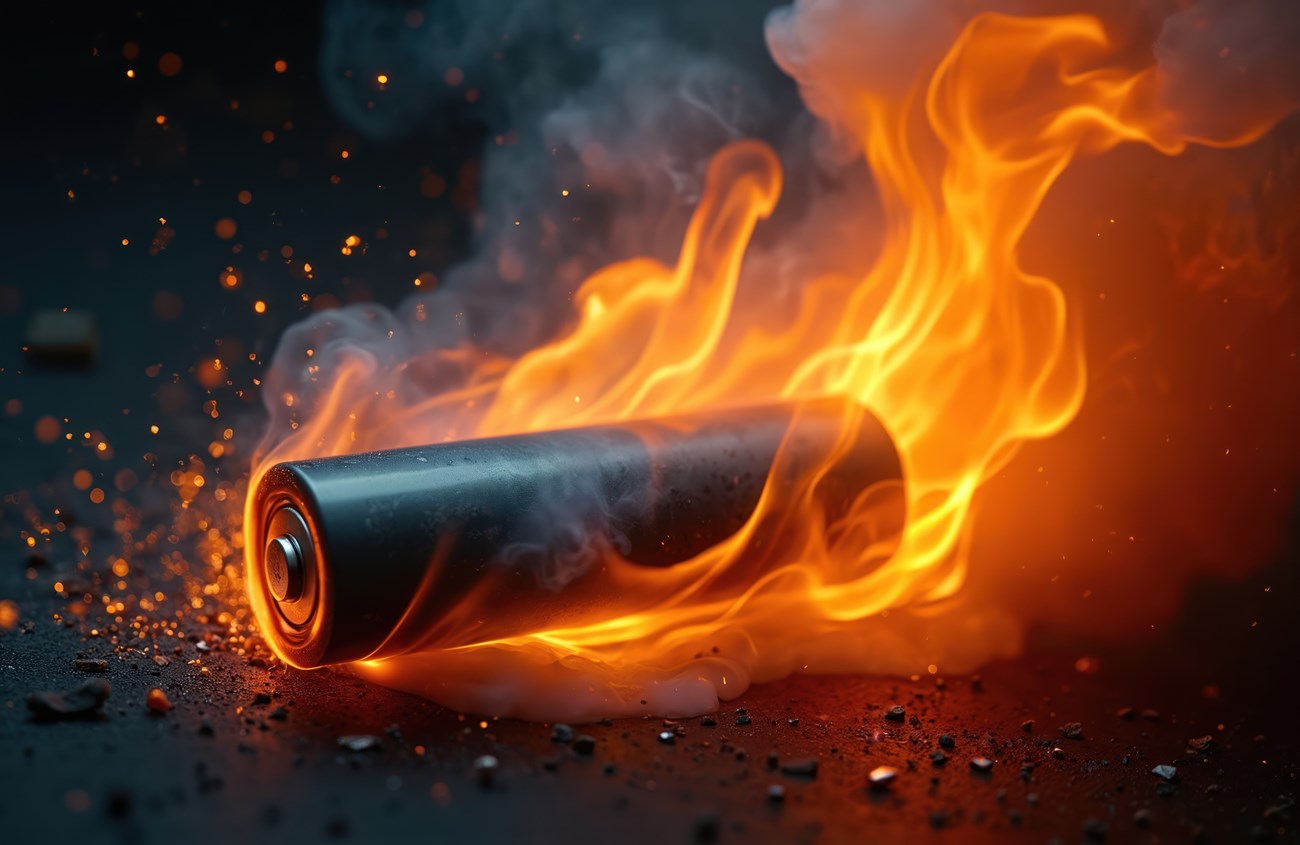Last updated: September 3, 2025
Article
Fire Prevention 52: Charged and Explosive

Adobe Stock
Lithium-ion batteries are incredibly common, and can be found in laptops, cell phones, watches, tablets, electronic toys, and electric cars. They're so common because, for their size, they're some of the most energetic rechargeable batteries available.
However, under the right circumstances, these batteries can overheat, potentially causing burns, an explosion, or a fire. Because most lithium-ion batteries contain a flammable electrolyte with a high energy density, they are susceptible to thermal runaway, a destructive chain reaction that results from overheating after excessive use. The stored energy is then released in the form of a fire. Fortunately, it's not very common, just two or three batteries per million have a problem.
Follow these simple safety guidelines to reduce the chance of your batteries overheating:
- Batteries are extremely sensitive to high temperatures. Don't expose your lithium-ion battery devices to the hot sun, like the dashboard of your car.
- Lithium-ion batteries are delicate. If there is the possibility of battery damage, it is a good idea to have the battery inspected by a qualified person.
- Ensure that your computers have air flow around and underneath the unit, so they remain cooler during operation. Do not use your computer on top of blankets or a bed.
- Batteries increase in temperature during recharging, which could cause them to overheat. Never leave your portable electronics plugged in when you’re not at home.
- Before you buy anything with a lithium-ion battery, do your homework. Check the packaging and product for a mark from a nationally recognized testing lab—that stamp means it meets real safety standards. Follow manufacturer’s instructions and use listed devices (e.g. UL, ETL, CSA) that meet safety standards.
- Place your device on a hard surface when charging and unplug or remove the battery when fully charged. Never charge your device on your bed, couch, pillow, or other flammable materials.
-
Use cables that came with the device to charge. Don’t use generic or aftermarket chargers or a charger from a different device. Replace the cord when damaged.
-
Don’t allow pets to play with or chew lithium-ion powered devices.
-
Don’t charge your lithium-ion battery powered devices near the emergency exit or only means of egress in case of emergency.
-
Ensure proper disposal of lithium-ion batteries. Don’t put them in the trash, find a proper recycling container or facility. Visit call2recycle.org to find a proper recycling facility near you.
-
Some smoke alarms or devices may use lithium-ion batteries, replace them according to manufacturer’s requirements.
For our readers who are now worrying about their electric car, you can breathe a sigh of relief. The lithium-ion batteries used in electric cars are less likely to catch fire due to numerous safety precautions, such as cooling and automatic shutdown systems. Refer to your car owner's manual for more information about the battery.
For more resources and information on fire prevention and safety in your home, visit the National Fire Protection Association.
